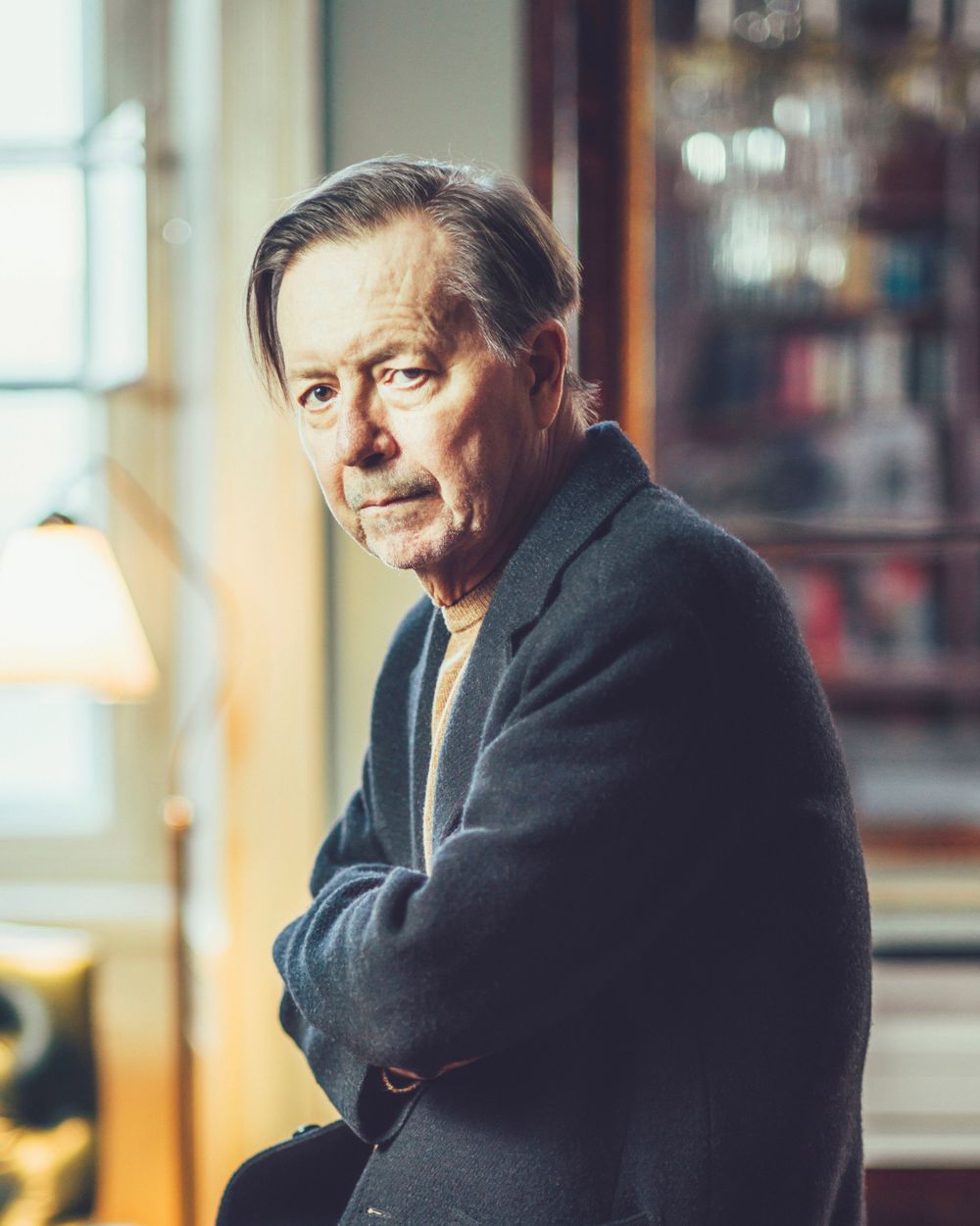Chair no. 14 – Steve Sem-Sandberg
Author and critic
Inducted 2021
 Steve Sem-Sandberg was born in Oslo in 1958 of Norwegian parents, moving to Sweden while young. He grew up in Vendelsömalm near Stockholm and attended secondary school at the Ecole Française in the capital. Since 2008 Sem-Sandberg has been a culture critic with the national newspaper, Dagens Nyheter, after a long attachment to the other major national daily, Svenska Dagbladet, where he had a prominent role as editor for its Opinion section, Under strecket, and for a period, as deputy editor for the culture pages.
Steve Sem-Sandberg was born in Oslo in 1958 of Norwegian parents, moving to Sweden while young. He grew up in Vendelsömalm near Stockholm and attended secondary school at the Ecole Française in the capital. Since 2008 Sem-Sandberg has been a culture critic with the national newspaper, Dagens Nyheter, after a long attachment to the other major national daily, Svenska Dagbladet, where he had a prominent role as editor for its Opinion section, Under strecket, and for a period, as deputy editor for the culture pages.
Sem-Sandberg lives in Stockholm, with his lengthy sejours in Prague and Vienna tangible in his production. His familiarity with Central European culture and his experience of the swift transformation of Eastern Europe after the fall of the Wall coalesced in his book Den kluvna spegeln. En resa genom det andra Europa (1991; “The divided mirror. Travels through the other Europe”). A decade later, he extended his span in the essay collection, Prag (no exit) (2002; “Prague (no exit)”), piloting the reader through the city’s literary heritage, guided by Franz Kafka and Vladimír Holan. These are genre-straddling hybrid books, travel writing and reportage under an essay umbrella. This literary amalgam was also evident in an earlier collection of cultural criticism, I en annan del av staden (1990; “In another part of town”).
The history of central Europe has permeated much of his fiction, and Sem-Sandberg is recognised principally as a novelist. De ansiktslösa (1987; “The faceless”) had views on the novel as art form. His writing has since followed different paths. He has immersed himself in issues: power structures and identity, the battle of ideologies, and the suffering that Nazism and the second world war visited on European 20th-century history.
Several works are documentary based. Three of the novels are so strongly bound as to be a trilogy: Theres (1996; “Therese”), Allt förgängligt är bara en bild (2002; “Everything ephemeral is only image”) and Ravensbrück (2003). They can be read separately and have also appeared as a collection, Tre romaner (2011; “Three novels”). The novels focus on three people: the West German terrorist Ulrike Meinhof, the poet Rainer Maria Rilke, and Kafka's translator, Milena Jesenká, murdered in Ravensbrück concentration camp.
His epic collective novels, The Emperor of Lies (2009) and The Chosen Ones (2014), gave Sem-Sandberg his international breakthrough. Both investigate the European trauma of Nazism. The first is set in the Nazi-enforced Jewish ghetto in Łódź, the other in the Spiegelgrund clinic in Vienna, where interned children were subjected to horrific medical experiments and murdered in their hundreds. The novel, The Tempest (2016), a retrospective of Quisling-era Norway in the wake of the second world war, is also part of his ambition to construe that epoch.
His recent output has concentrated on the 19th-century German dramatist Georg Büchner and his uncompleted play, Woyzeck, emblematic in modern theatre history. The psychological mystery of Johann Christian Woyzeck, a Napoleonic War survivor who knifed a woman to death, led Sem-Sandberg to comb court archives and unearth other material. That research produced the novel W (2019) and the subsequent short story collection, Jägarna i Armentières: Büchnervariationer (2020; The hunters of Armentières: Büchner variations”), featuring figures from Büchner’s play and his short story, Lenz. The books form a historical mindset, Sem-Sandberg using language to create a period atmosphere and an authentic 19th-century environment for the psychological drama.
Sem-Sandberg latest work is the novel Oceanen (2022; The Ocean) which depicts the 45 days and nights that the author and philosopher Jean-Jacques Rousseaus spent on Île Saint-Pierre in the fall of 1765.
Among Sem-Sandbergs several awards are the August Prize in 2009 for the novel, The Emperor of Lies; the Marin Sorescu Prize in 2007; the Samfundet De Nio Grand Prize in 2009 and the Eyvind Johnson Prize in 2020. His books have been translated into roughly thirty languages and in 2016 he was awarded France’s Prix Médicis Étranger for the novel The Chosen Ones.
He succeeded Kristina Lugn on Chair no. 14 in the Swedish Academy.